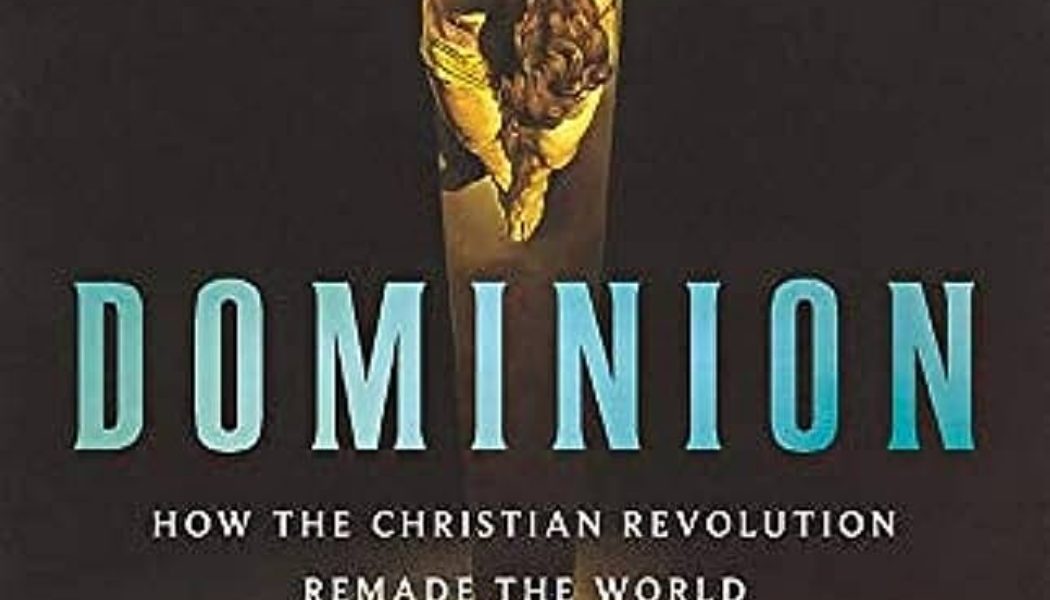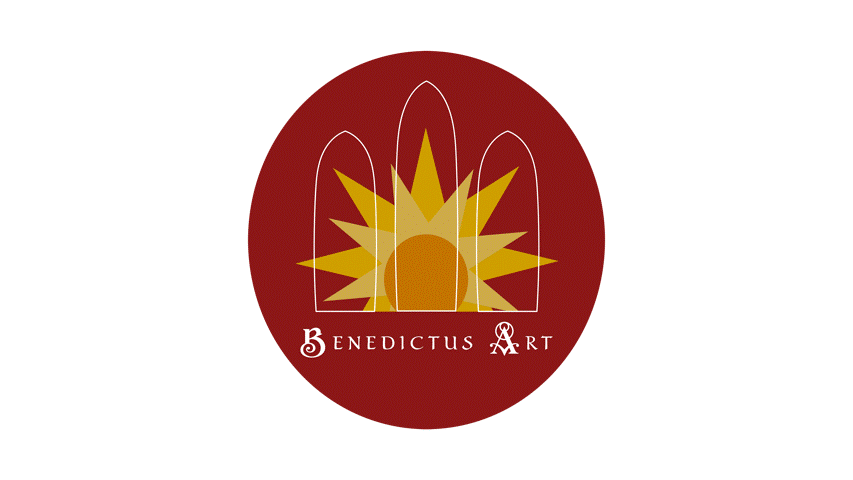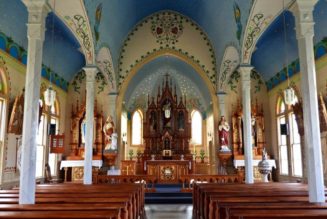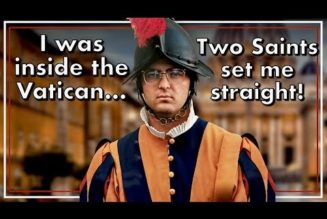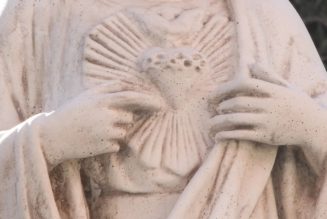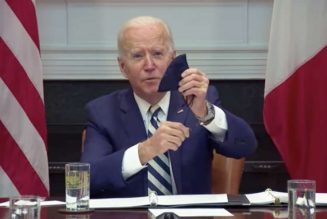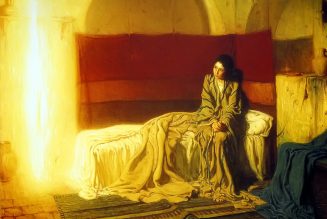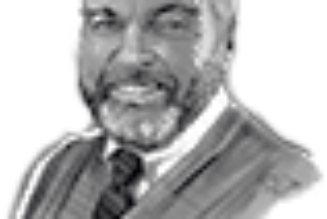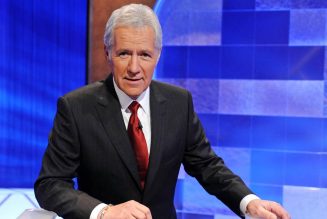“To Whom shall we go, you have the words of everlasting life.” John 6:68
When Jesus spoke very challenging words about the Eucharist, many of his followers left him. Far from clarifying or qualifying his “eat my body” comments, Jesus doubles down towards his closest followers: Will you also leave? To the unapologetic question, St. Peter responds with the quote above. What was the tone of Peter’s words? That first phrase, “To Whom shall we go” could have sounded rather fated with a hint of inevitability. Peter acknowledges that there is no one else to turn to. This dynamic between the challenge of Christ to his followers to a reformatio and the response of an inevitable attachment to Christ is at the center of Tom Holland’s Dominion: How the Christian Revolution Remade the World.
Holland’s sweeping illumination of the revolution that Christianity instills in its members is not limited to the Western Civilization, though the majority of his focus is, of course, occidental. Holland’s work begins with a bang and his preface is an essential read. Going back to the origin of Christianity, Holland presents the stark historical contrast between the Romans’ use and repugnant view of the cross to what it is today. Pointing to the global recognition of the Christian cross, Holland writes, “Whether in Korea or in Tierra del Fuego, in Alaska or in New Zealand, the cross on which Jesus had been tortured to death came to serve as the most globally recognized symbol of a god that there has ever been” (12). Holland does not mince words: the death of Jesus on his specific cross not only changed the entire world’s view of the cross, but it also changed the world’s view of itself. From principles of human dignity and objective morality to the delight when the weak overtake the strong, the moral values of our world are, in fact, Christian.
This is not a new thesis. The title of a 19th-century sermon written by St. John Henry Newman summarizes Holland’s thesis: “The Cross of Christ, the Measure of the World.” In short, one of the great ‘revolutions’ of Christianity is that the ubiquitous cross, once only an instrument of torture, is now globally recognized as a symbol of God and His peace. Unlike Newman, for whom Christ is the telos of the world, Holland believes in a revolution that ends in disbelief in the God of Christianity— but more on that point at the end of this review.
To address an important question: why write a review of this history book for ClassicalEd Review, a site dedicated to the contemporary Classical Education revolution? First, Holland’s Dominion is more an intellectual history than simply a historical narrative, which brings it into the realm of classical education. Second, Holland’s thesis that there is no getting away from Christianity has a direct effect on the movement and is important for teachers and school leaders alike on many levels. What Christianity has brought to classical education is another iteration of the long-debated question, “What does Athens have to do with Jerusalem?” This is the question that Holland’s book raises for contemporary educators in the classical education space.
Some in that space would like to eschew the essential connection between Christianity and classical education. However, Holland would lend credence to the argument that there is no way for classical educators to claim separation from Christianity. Indeed, they are perpetually wedded. Yet, the perplexity is found in the origins of classical education that pre-existed Christianity because the Greeks and Romans are major pillars. Indeed, the Greeks and Romans are almost the sine qua non for a classical curriculum. For many centuries in the West, classical education has been the realm of the men of letters who studied primarily Latin (since Late Antiquity) and Ancient Greek (since the Renaissance) and studied the Greek and Roman texts. Where is the Christianity in this education? Where is Jerusalem in Athens?
The question of the good of education only makes sense within a framework of the goodness of human existence. Holland rightly calls Christianity “the most influential framework for understanding human existence that has ever existed” (535). Indeed, he is keen to argue that all arguments about what is good for human beings, even those arguments that oppose or condemn the actions of Christians, have their origin in Christianity. Any argument that speaks of the dignity of the human person or that upholds education as intrinsically good for the human person is an argument from Christian principles. Therefore, the famous Adlerian thesis that the best education for the best is the best education for all is an argument not from Greek and Roman principles, but from Christian principles. Christianity is the framework in which any classical school exists. It is the framework in which any discussion of the good exists.
Now to return to the question of Holland’s belief. His book begins with a bang of a preface, but it ends with a whimper of an epilogue. Holland says he would do a disservice to Christianity if he does not acknowledge the unknown women who have helped spread the Christian Faith. In this vein, he tells a moving story of his godmother, who tried to pass the Christian Faith to him, beginning his epilogue with a beautiful homage. Holland says that his godmother also introduced him to the greatest interference with his pursuit of faith, namely dinosaurs. He says, “I found it hard to square [what God says to Job about Leviathan] with what I knew of ichthyosaurs. Slowly, like a dimmer switch being turned down, I found my belief in God fading” (536). The more Holland learned of prehistoric species, the more he lost his faith.
It seems that Holland believes his emphasis on the Christian tenet of the continual need for reformatio/revolution can logically square with the notion of a follower walking away from Christ. But “to Whom shall we go? You have the words of everlasting life.” The continual need for Christian reform is not the same as a Marxist need for perpetual revolution. The need for Christian reform is to grow deeper into the mystery that is Christ Himself.
Furthermore, while Holland’s use of “revolution” is not to be equated with the simplistic, war-filled revolution, and it is closer to a conversion or turning around, nonetheless, he allows for a logical fallacy to seep into his reasoning with the dinosaurs. He allows this fallacy to influence what comes across as a despondent conclusion that since there is no evidence for the connection between the Christian God and dinosaurs, he cannot get his head around how the Christian God can be the center of everything. The fallacy is the absence of evidence fallacy, i.e. the absence of evidence for continuity between the Bible and dinosaurs is not evidence for the absence of continuity between one’s faith in Scripture and one’s reasonable approach to prehistoric creatures. An absence of confirmation is not a confirmation that there is no confirmation. In other words, just because Holland cannot square the ichthyosaur with what Scripture says about Leviathan is not evidence that they cannot be squared.
So, after writing a lengthy illumination of the powerful and complex history of Christianity in which there are highs and lows, this Christian history has remade the principles on which kings, laws, and nations are established and rightly judged. It is Christian principles that overcame slavery, established universities, built hospitals to serve everyone, and generated more progress in the last 2,000 years than humanity had ever witnessed before. These principles take their origin of love from the single cross on which Jesus Christ hung. Despite this marvelous revolution from a criminal’s death on a gibbet to global recognition, however, Holland cannot assent. This makes the book an extensive, lovely cultural account of Christianity concluded by a whimper of hubris that I pray will turn into a true Christian reformatio for the brilliant writer, Tom Holland.
Bill Haley has been immersed in education for most of his professional career. On the order of reason, Bill led schools as a headmaster, assistant headmaster, dean of academics, and dean of students while also teaching 3rd, 5th, 8th, and 11th grades within Great Hearts Academies. On the order of faith, Bill is both a catechist and trainer of catechists, and has taught the Catholic Faith to every age level, from children to professionals and retirees. He is a Catholic speaker and an adjunct instructor at the Kino Institute for the Diocese of Phoenix. Currently, he is a Realtor® who helps people buy and sell their special place in the Greater Phoenix area. His most prized accomplishment in sales was when he convinced his lovely bride, Maureen, to marry him. They are blessed by a clan of ten children, currently ranging from 24 to 4 years old.
